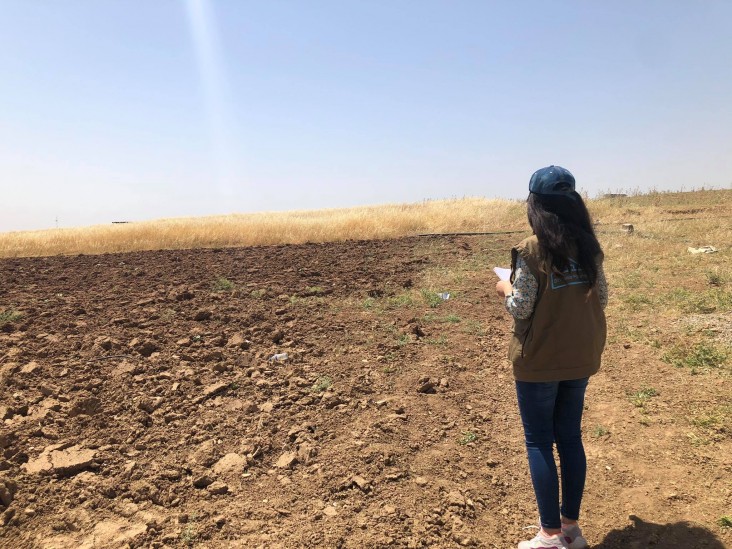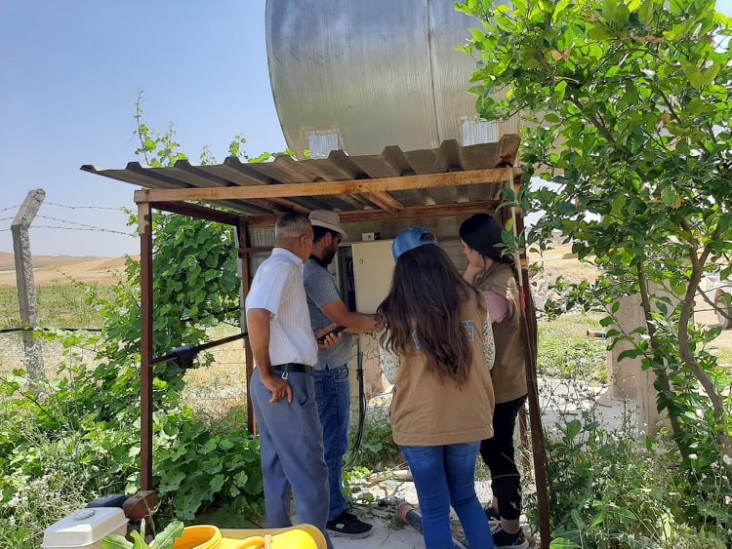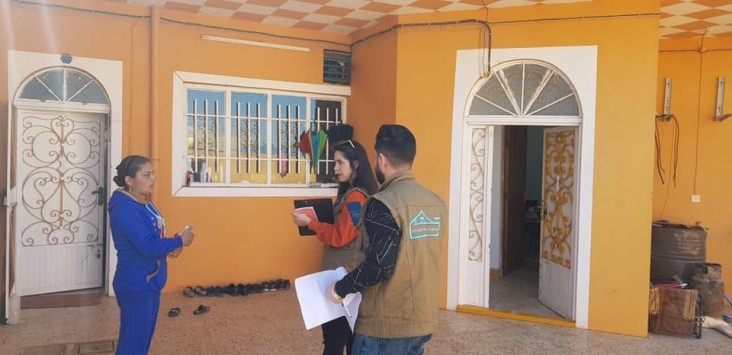Speeches Shim

As the so-called Islamic State of Iraq and Syria (ISIS) was beginning to launch attacks on Kirkuk City, Amina* and her family fled and settled in the nearby city of Mosul. Amina enrolled in the electrical engineering program at Mosul University with hopes to work in engineering to support her family, but the subsequent occupation of Mosul by ISIS delayed her studies for more than a year while she was displaced, until after the terrorist group was defeated. When she returned, Mosul University’s College of Electrical Engineering building was still standing, but reeked of gasoline-- a reminder of ISIS’ failed plans to burn it down. “We suffered a lot. But after a lot of suffering from ISIS in Kirkuk and Mosul, I managed to graduate,” Amina said.
Now, Amina is the youngest of six ambitious Iraqi engineers participating in a USAID program to provide electricity through solar energy for villages across the Ninewa Plains, a region with abundant sunlight and opportunities for sustainable power. “After graduating from Mosul University in 2019, six months later I was given the opportunity to work with the team. I didn’t think I’d be working in my speciality,” admits Amina. Fellow engineer, Zamir* adds, “Like every engineer, we always try to find a job related to our specialties, but it’s so hard to find a job in our field.” Not only are engineering jobs hard to come by in northern Iraq, but the projects are usually short-term and do not guarantee job security and a sustainable source of income. Now, these engineers have an opportunity to serve their own communities, too. The project manager, Ahmed*, a civil engineer from Alqosh, says it best: “six engineers from different villages and backgrounds are now one team.”


Surging electricity demand in northern Iraq has severely strained the region’s insufficient power energy infrastructure. An increasing number of industries, the influx of refugees and internally displaced persons, and the drop in oil prices and related revenue has made it hard to purchase gas-- all of which have compounded Nineveh’s energy crisis. The current electricity supply in northern Iraq meets only 40 percent of the demand and the government is only able to supply eleven hours of electricity a day.
To compensate, the population has been relying on diesel generators - an expensive, environmentally hazardous, and high maintenance alternative. USAID’s partnership with local organization Shlama Foundation is working to provide electricity through solar power for 100 families and water pumps for 30 farms across the Nineveh plains, and 40 street lights in the village of Tesqopa. After installation, a solar power system is low cost, eco-friendly, and requires minimal maintenance.
Zamir* notes that, “In Iraq, we think we can just use electricity endlessly and the government will keep providing it, but we actually don’t have enough to have a good life. In the summer when we use generators, the generator owners raise the price and it is too expensive for families in the Nineveh Plains.”
Nour*, a woman engineer on the team exclaims, “Now we can make use of the high temperatures in the summer and convert it into power for the whole community!” Next year when the project ends, these six engineers plan to start their own company in the Nineveh Plains to continue implementing solar energy across the region. Families in the Nineveh Plains are eagerly waiting for the project’s completion and many families have already expressed interest in purchasing solar panels from the engineers’ new company.
*Pseudonym

Comment
Make a general inquiry or suggest an improvement.